Christmas Playlist Series# 4, Jesus Saw Their Faith
Christmas Playlist Series# 4, Jesus Saw Their Faith
By: Bobby Sullivan
(Sermon Notes & PowerPoint links at the bottom of the page)
Introduction: Text Mark 2::1-12
There’s a familiar old story that’s told about a French tightrope walker who did incredible stunts. All over Paris, he would do tightrope acts at tremendously scary heights. Then, he would do it blindfolded, then he would go across the tightrope, blindfolded, pushing a wheelbarrow.
As the story goes, there was an American promoter who read about this in the newspapers and wrote a letter to the tightrope walker, saying, “Blondine, I don’t believe you can do it, but I’m willing to make you an offer. For a very substantial sum of money, besides all your transportation fees, I would like to challenge you to do your act over Niagara Falls.”
Blondine wrote back and said, “Sir, I’d love to come.” Well, after a lot of promotion and setting the whole thing up, a crowd of people came to see the event. Tightrope was to start on the Canadian side and come over to the American side on this rope suspended over the falls. After a suspenseful drum roll, he came across blindfolded.
The crowds went wild, and he came to the promoter and says, “Well, Mr. Promoter, now do you believe I can do it?” He said, “Well of course I do. I mean, I just saw you do it.” “No,” said Blondine, “do you really believe I can do it?”
“Well of course I do, you just did it.” “No, no, no,” said Blondine, “do you believe I can do it?” “Yes,” said Mr. Promoter, “I believe you can do it.” “Good,” said Tightrope, “then get in the wheelbarrow.”
*******************************************
You see, faith is never something just to be talked about. It is something that must be demonstrated in the way we live.
Paul Harvey once said, “If you don’t live it, you don’t believe it.”
I love the quote of the week, “To the one who has faith, no explanation is necessary. To the one without faith, no explanation is possible.” Write this down, “Faith is meant to be more than a formality, Faith is meant to be more than a feeling and faith is meant to be more than a formula!” in fact if you can reduce it to a formula it is not faith. It’s a flop and has no function. Richard Rohr, “faith is patience with mystery”
One priest said,”the opposite of faith is not doubt , its certainty” I am certain that as I activate my faith I will receive. My faith is a faith that works.
“False hope creates an illusion whenever it is substituted for God’s faith. Dr. Charles Price, the Pentecostal evangelist whose gifts of healing miracles were known in the first half of the 20th century wrote this in his book called, REAL FAITH:
“There is a great deal of difference between what we call the faith of man in God, and the faith of God that is imparted to man. Such faith is not the child of effort, neither is it born of struggle. If it is the faith of God , then we get it from Him, and not from our mental attitudes of affirmation.”
Melinda Fish author of ‘Restoring the wounded Woman, “ When your hopes and dreams are not born of God’s faith but have created an illusion, that illusion is destined to fail, bringing with it despair. Until that illusion is dead, Gods true plan for your life will be obscured. You are not happy where you are right now until you are dead to what could be.”
You are about to see that FAITH IS AN EXPECTATION!
There’s a story in Mark 2 that demonstrates this principle. I want us to read and study the whole story, but for now, I want to draw your attention to four short words in verse 5: “Jesus saw their faith”. Most people would say, “You can’t ‘see’ faith. Faith isn’t in the physical, visible realm.” But it is. And Jesus saw the faith of these four men.
and when Jesus sees it, he is pleased
It’s an interesting story that begins in verse 1:
“And again He [Jesus] entered Capernaum after some days, and it was heard that he was in the house. Immediately many gathered together, so that there was no longer room to receive them, not even near the door. And he preached the word to them.” (Mark 2:1-2)
In verse 1, we’re told that Jesus was “in the house.” At least, that’s what the New King James version says.
When people found out that Jesus was at home, they began to gather in it.
Although it was early in his career, Jesus was already starting to be quite a popular fellow. Here was this man who was healing sick people all over the place. What did he have to say? Keep in mind that life in Palestine was a little more public than we are used to. Usually, the door would be opened in the morning and anyone was free to go in or out. It was never shut unless there was some special need for privacy. So, before long, the crowd filled the house and overflowed into the street, everyone trying to get closer to hear Jesus.
“Then they came to Him, bringing a paralytic who was carried by four men. And when they could not come near Him because of the crowd, they uncovered the roof where He was. And when they had broken through, they let down the bed on which the paralytic was lying.
When Jesus saw their faith, He said to the paralytic, ’Son, your sins are forgiven you.’ But some of the scribes were sitting there and reasoning in their hearts, ’Who can forgive sins but God alone?’ And immediately when Jesus perceived in His spirit that they reasoned thus within themselves, He said to them, ’Why do you reason about these things in your hearts? Which is easier, to say to the paralytic, “Your sins are forgiven you” or to say, “Arise, take up your bed and walk”? But that you may know that the Son of Man has power on earth to forgive sins’ — He said to the paralytic, ’I say to you, arise, take up your bed, and go your way to your house.’
And immediately he arose, took up the bed, and went out in the presence of them all, so that all were amazed and glorified God, saying, ’We never saw anything like this!’” (Mark 2:3-12) EXPAND ON THIS
What will happen when faith collides with expectation? What would happen to our city when we invite people to Jesus and not just to membership of a church?
There are a lot of lessons that we could gain from this passage, not the least of which is the power of Jesus to forgive sins. But, again, I want to draw your attention to that phrase: “Jesus saw their faith.”
While the crowd struggled to get closer to Jesus, these four men came bringing a paralyzed man on a stretcher.
1.) JESUS SAW 4 MEN WHO CARED
I read what one man had to say about a recent visit to Capernaum. He said that his group included a couple of folks in wheelchairs and he noticed that even today, Capernaum is not an easy place in which to maneuver if you are disabled. The roads are not paved smoothly, stairs and vertical rises make it difficult to get around, and you really have to rely on your friends to help you travel there if you can’t walk.
That’s what’s going on here. This man has four friends helping him out. They want to take him to see Jesus, but there was no way to get in the door. So what could they possibly do? This was important. They had to see Jesus. So they carried the man up on the roof. In Palestine, the roofs were flat. They would be used for rest and quiet, for drying clothes and storing things. In I Kings 17, we read about Elijah living on the roof. In Acts 10, Peter is up on the roof praying. So, generally there were stairs going up along an outside wall.
According to some scholars, the roof was usually made of beams about 3 feet apart. These beams would be filled with twigs, then packed with clay and covered with dirt.
PICTURE OF ROOF SLIDE
If that was the case, it would have been an easy matter to dig between the beams without doing much damage to the house.
Then the paralyzed man was lowered down to Jesus, and when Jesus “saw their faith”, he both healed and forgave the paralytic.
I want you to think about this for a moment. If you were going to visit a famous rabbi who had a large following, who possessed some degree of prominence, and if you wanted to treat the rabbi respectfully, as Jews were taught to do, and in addition you wanted him to heal your friend, you would certainly try to make a good impression by treating him well. The last thing you would do is tear up his house! It just really doesn’t seem to make much sense that you would destroy this rabbi’s house and then ask him for a favor, that you would expect him to treat you well after that. It is perhaps because it doesn’t make much sense that Jesus was led to see their faith.
Let me explain what I mean by that. These men evidently had heard Jesus talk about himself. How he said that the Son of Man had come to seek and to save that which was lost. How he said the Shepherd would leave the ninety-nine in the pen and go out and find the one that was still lost. How he said that he was the Physician who had come for the sick rather than for the well. And I’m sure that throughout his teaching in those early days in the Galilean ministry, Jesus repeatedly made the point that needy, broken, hurting, and desperate people were the very ones for whom he had come and on whom his ministry was focused, that he was God’s representative to meet their needs.
And these men were audacious enough to believe him! They were boldly saying, “If you say so, we are going to trust that you care more about people than buildings, and we are going to tear a hole in your roof and put before you one of the very kinds of people you said you have come to help.” They believed the things that he had said about himself and they acted on their belief. They were willing to go to lengths that other people would regard as questionable.
I think that illustrates a point about how we are to experience the Christian life.
Let me ask you, is there anything bold about your faith? Jacob wrestled with an angel, who was really nothing short of God himself. He wrestled all night, and then grabbed him and held on and said, “I will not let you go unless you bless me” (Genesis 32:26). Let me tell you, that’s a pretty bold thing to say to God. And yet, boldness is a word that the Hebrew writer uses to describe how we ought to approach the throne of grace (Heb. 4:16).
There is a boldness that comes by believing deeply that God means what he says.
Someone has said, “When we are asked to describe our relationship with God, if the first adjective that springs to our minds is ‘polite,’ then we have a problem. It means that we are not listening. There needs to be a boldness with which we confront the Lord, and insist in his presence that we are going to take his word seriously and we likewise expect him to take us seriously.”
You see, a hole in the roof was no problem for Jesus. A hole in someones heart was a problem and one that only HE COULD FILL. People have always been, and always will be, more important than buildings to him. So he saw a both faith in the action taken by these four men.
I want to briefly look at three qualities of their faith that I believe need to be a part of our faith as well
- Jesus Saw Four Men Who Cared
These were four men who weren’t thinking of themselves. They didn’t need a special blessing from the Lord. But they had a friend who did. And they went to a lot of trouble to get him the help that he needed. The reason is that he was important to them. They cared about him.
Someone has well said that “They won’t care how much we know until they know how much we care.”
Certainly Jesus set the supreme example in this regard.
There’s a beautiful story in Matthew 11 where John the Baptist was in prison. He heard about some of the things Christ was doing and he sent two of his disciples to find out if Jesus truly was the Messiah, the Son of God. Jesus said,
“Go and tell John what you hear and see: the blind receive their sight and the lame walk, lepers are cleansed and the deaf hear, and the dead are raised up, and the poor have good news preached to them.” (Matthew 11:4-5)
You go back and you tell John about a man who truly cares about people, who hurts where they hurt, who is concerned about their needs.
I don’t know about you, but I’m thankful that Jesus didn’t just come to the earth, preach a couple of lessons a week about how sinful people were, and then ascend back to heaven. It helps to know that our God is full of compassion, that he truly cares about us and our problems.
As a church today, we’ve got to be a people who truly care.
Paul wrote, “Rejoice with those who rejoice, weep with them that weep.” (Romans 12:15). In other words, care. Get involved in the lives of others. It’s so easy to sit back, wrapped up in our own lives and our own problems, so that we don’t really care about anyone else.
What a tremendous difference it would make if we would just spend a bit of each day looking for someone who has a need. And that means more than expressing concern. It means actually helping people out with their problems, what one writer calls “getting your hands dirty in their lives.”
“A candle loses none of its light by lighting another candle.”
“We make a living by what we get. We make a life by what we give.” – Winston Churchill
“Only a life lived for others is worth living.” – Albert Einstein
Can you imagine these four men visiting their paralyzed friend? They stop by to say hello, talk about their big plans for the week-end, then they start out the door saying, “Yeah, we’re going to hear this fellow Jesus speak. By the way, this Jesus has the power to heal anybody, even somebody paralyzed like you. Listen, if there’s ever anything we can do for you, you just let us know!”
They didn’t do that because they cared. And they showed that they cared about him by meeting his need.
James said, “What good is it, my brothers, if a man claims to have faith but has no deeds?….Suppose a brother or sister is without clothes and daily food. If one of you says to him, ’Go, I wish you well; keep warm and well fed,’ but does nothing about his physical needs, what good is it?” (James 2:14-16).
Indeed, what good is it? Caring about people only has meaning when we are doing something. Jesus saw four men with a faith that cared. We need to have the same kind of faith. We need to be a people who care about one another, and a people who care about the physical and spiritual needs of the world around us.
- “Kindness is a language which the deaf can hear and the blind can read.” – Mark Twain
- ATTACK THE LACK WITH R.A.K
- Random Acts of Kindness
- Jesus Saw Four Men Who Wanted to Share Christ
These four men didn’t want to take the paralyzed man to a chariot race. They didn’t want to take him down to the lake to go fishing. They wanted to share Christ with him. And that made all the difference in his life.
The church needs to be a people with a faith that is anxious to share Christ. Like Andrew. Andrew is not one of the prominent apostles. Not like James and John, or Peter, his brother. But every time we read about Andrew, he’s bringing someone to Christ. He brought his brother, Peter, to the Lord. (John 1:39-42) He brought the boy with the fish to Jesus. (John 6:8-9)
He brought some Greeks with questions to Jesus. (John 12:20-22) We are not told that he ever preached a sermon but he led Peter to Christ. Peter preached many sermons, but there would have been no sermons from him had it not been for the faithful, personal soul-winning of Andrew. Andrew is an illustration of a successful soul-winner.
No, he’s not recognized as great. But he shared Christ with the people around him. And when you stop to think about it, what could possibly be greater than that?
We ought to feel about Christ the way the apostles did when they said, “We cannot help speaking about what we have seen and heard.” (Acts 4:20). They couldn’t hold it inside of them. They had to share it!
- THE SOUL-WINNER’S TASK JOHN 1:41
What is the task of the soul-winner? Verse 41 tells us – “The first thing Andrew did was to find his brother…” Each word in this sentence is important:-
- Notice the word “first”. There is no doubt that he won many others to the Lord after he himself became a Christian, but first he thought of and successfully won his own brother. Immediately he found Christ he became concerned that someone else should find Him, and that is exactly how it should be. When we are born again the impulse to win someone else is born within us, and we should nurture this impulse and see to it that soul-winning is always regarded by us as a matter of first importance.
- Notice the word “find”. We do not know how far Andrew needed to search for Peter, but we do know that those who the Lord would have us find are lost, and for this reason they need to be found! look up Luke 15:4-6 (99 sheep found 1 lost). Do we realise that all the people around us who are without Christ are lost? Once this fact really grips us then we shall feel that the most important thing in the world is to introduce them to the One who alone can save them. Remember, . Every number found is one number that’s no longer lost.
- Then, Andrew first found “his brother”. It is very significant that the record says “his brother”- not someone else’s! It is so much easier to speak to someone else’s brother, but let us first be concerned for those for whose salvation we are first responsible, namely, the members of our own family circle. Do you have loved-ones who are not Christians? Are you doing what you can to bring them to the Lord Jesus?
This is the soul-winners task; it needs much patience and endurance, but it can bring blessing to those near to us.
- THE SOUL-WINNER’S TESTIMONY
What did Andrew say to Peter when he found him? Verse 41 tells us We have found the Messiah (that is, the Christ)”. All Andrew did was to give his testimony. Notice four things about it:-
- It was a Spoken Testimony. It is important that our lives are consistent, but living a Christ-like life does not exempt us from the responsibility of speaking for the Lord as and when He gives us the opportunity – look up Luke 8:39 and Mark 5:19-20 and notice the word ”tell” “proclaim” “ Return to your home and recount the story of how many and great things God has done for you And the man departed, proclaiming throughout the whole city how much Jesus had done for him.”
Most of us are ready and willing to speak on almost every subject, but are we as ready and willing to speak of and for the Lord? – look up Psalm 50:23.
- It was a Simple Testimony.A child could have understood what he said; and it is when we speak of the Lord Jesus as naturally as we talk of any earthly friend that God blesses and uses our testimony to the salvation of others – look up Acts 8:4-5. Have you found the Lord as your own Saviour? Have you proved Him to be a wonderful friend? Has He answered your prayers? Can you not tell others about these things?
Philip went down to the city of Samaria and proclaimed Christ to the people and great crowds listened and heeded the word and watched the miracles and wonders he kept performing.
- It was a Sure Testimony.Andrew was absolutely certain of his message, and that is what the world is waiting for today. On every hand there is a lack of certainty, but God, who is faithful, has given sure and certain declarations in His Word upon which we can rest and find absolute assurance – look up and compare John 9:25; 2 Timothy 1:12; 1 John 5:13. Do you “know”?…then will you ”say so”?… – look up Psalm 107:2.
- It was a Sanctified Testimony.Andrew used what was in Peter’s mind as a point of contact, for Peter (like every Jew) was looking for the Messiah. Great wisdom is needed in soul-winning work, and the Lord promises to give it.
James 1:5. “ If any of you is deficient in wisdom , let him ask of the giving God (who gives) to everyone liberally and it will be given. “We need to find out what our contacts are interested in and make that the point of departure in seeking to win them for the Saviour. Are you doing that? If not, will you begin now?
When Andrew had given his testimony to Peter his work was not finished. There was still one thing he needed to do. We call it:-
THE SOUL WINNERS TRIUMPH:
The soul-winners triumph is indicated in verse 42: ”And he brought him to Jesus.” Have you ever had this glorious experience?
It is important to notice that he brought Peter to Jesus. He did not tell him to come to Christ: He led him to the Lord and made the introduction. It is a fact that the majority of those who come to the Lord and are truly converted are brought to Him by someone – look up Matthew 14:34-36. Andrew formed a human link between the Saviour and his lost brother. Was it worth the effort? Was it worth giving his testimony? Read the whole of verse 42, and try to imagine how Andrew must have felt at Caesarea Philippi (Matthew 16:13-19), and at Pentecost (Acts 2:14).
There are “Peters” all around us who are waiting to be found and won to the Lord. Will you be a true Andrew and seek to win them for Him?
The four men in our lesson were men in good health. They didn’t need a special blessing from the Lord, but they brought someone who did. And that’s also the goal of all Christians. Indeed, what greater compliment could be given than to say, “He brought people to Christ”?
III. The Lord Saw Four Men Who Wouldn’t Give Up
“Don’t be discouraged. It’s often the last key in the bunch that opens the lock.”
“Wars are not won by evacuations.”
~ Winston Churchill
These four men brought their friend to Jesus. But when they got near the house, they saw that there was no room to get through.
Now if you had been in their place, what would you have done if you had arrived at the house and seen all those people crowded and overflowing out into the street? Would you sit back and wait for the crowd to leave? Would you say, “Let’s just go home — we’ll never get in”?
Not these four men.
Now, if they had quit at this point, they would have had a good excuse or reason to go home. But they weren’t looking for a way out. It’s amazing how many people are looking, it seems, for a reason to get out of doing something. They always seem to have a “reason” for their unfaithfulness to the things of the Lord. The New Testament calls them excuses.
But these four men had a faith so great that it refused to die in the face of obstacles. They didn’t want to quit. They couldn’t bring themselves to say, “We can’t do it.” They were determined that nothing would stop them from seeing Jesus. Their friend was sick and Jesus had the power to heal. And they were determined that they would bring the two together, at any cost to themselves.
And that is exactly what it took – a cost.
It cost them the time to carry him to the house.
It cost them the effort to carry him to the roof of the house. It cost them the trouble to tear up the roof and let him down.
It cost them the favor of the people on whose heads the rubble was dropping as they ripped up the roof.
And it probably cost them the money to pay for the roof to repair it. But they were willing to do whatever it took. And it probably increased their faith, because difficulties test us, and thereby cause our faith to grow.
You see, our failures as churches and as individuals generally lie not so much in our obstacles and problems as they do in our lack of faith. We’ve already decided what’s not going to work and who’s not going to respond and what can’t be done. And somehow that soothes our conscience a little bit when we don’t do anything because “it wouldn’t do any good anyhow.”
There are many who are anxious to cry, “It can’t be done.” And until we put forth the effort, it won’t be done. But so much can be accomplished when we recognize the power of God.
“I can do all things through Christ which strengtheneth me.”(Philippians 4:13).
The Lord’s work has not always been accomplished by talented people or intelligent people or strong people.
But it has always been done by people who believed in the power of God, who did what they could, relying on God to supply the rest.
There is a poem by Edgar Guest that I like:
There are thousands that tell you it cannot be done,
There are thousands to prophesy failure;
There are thousands to point out to you one by one,
The dangers that wait to assail you.
But just buckle in with a bit of a grin,
Just take off your coat and go to it;
Just start to sing as you tackle the thing
That “cannot be done”, and you’ll do it.
So, here were four men who refused to have a defeatist attitude. There were some obstacles in the way, yes. There were probably some people who said it couldn’t be done. But their faith led them to put forth the effort and the Lord rewarded them.
Conclusion:
And it showed their faith. It made their faith visible to Jesus and to any others who saw it. Our actions will make our faith visible to the watching world. A visible faith is a faith that works.
In these four men, Jesus saw faith, determination and concern for others. What does Jesus see in us? Are we willing to walk out on a limb for him and others? We are what our faith is!! Our faith in God is what pulls fear and doubt together.
BLONDIN VIDEO https://youtu.be/nEHv1Rcn9YQ
Christmas Playlist Series# 4, Jesus Saw Their Faith, Sermon notes to print, PDF
Christmas Playlist Series# 4, Jesus Saw Their Faith, PowerPoint Slides, PDF


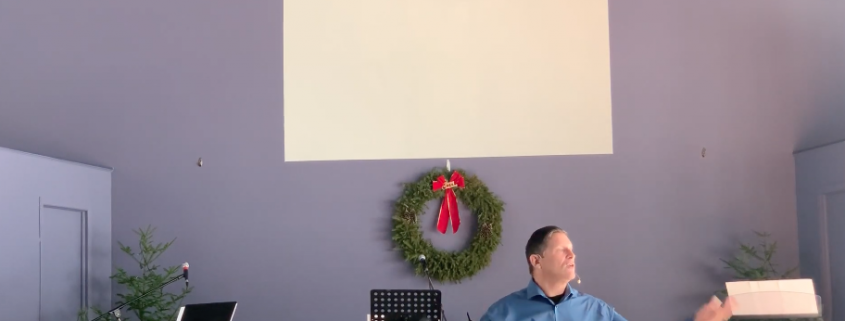
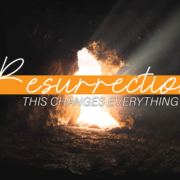
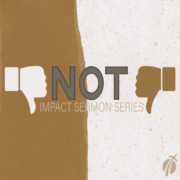
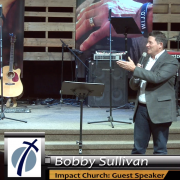
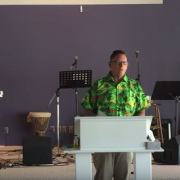




Leave a Reply
Want to join the discussion?Feel free to contribute!